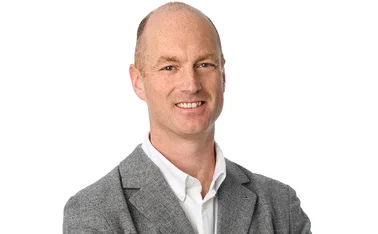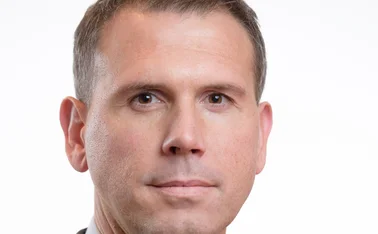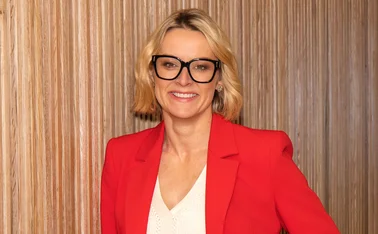
Q&A: Alzheimer's Society's Tim Shakespeare on why the Insurance Day of Giving is so important

With under a month to go until the first ever Insurance Day of Giving on behalf of Insurance United Against Dementia and Alzheimer's Society, IUAD board member Jonathan Swift spoke to the AS research information manager Tim Shakespeare about why it is incumbent on as many of the industry getting involved as possible.
How did you personally get involved in dementia research?
I studied psychology at university and got involved in understanding the brain and how its changes in people. Then I did a PhD at University College London, which was with people who have a type of dementia that impacts their vision and that involved looking at brain scans and how their visual activities, language and memory was impacted over time.
I followed that line of research because I thought it sounded very interesting, but through the three years of my PhD I met so many people affected by dementia in different ways that I realised we needed to do more to help them and that got me really passionate about the cause of dementia research.
The money raised by the IUAD is going towards the Dementia Research Institute, can you explain why this is so important?
Dementia is the biggest health challenge of our time and it is a complex condition caused by a number of different diseases of the brain. In order to find answers we need to fund better treatments to slow these down or stop them. And to do that we need a bigger investment in research to find out exactly what is happening to cause those diseases, to fill the gaps in our knowledge and inform future treatments.
That is what the UK DRI has been established to do. It is a landmark initiative because we have never seen such a big investment in dementia research in the UK before and it is going to transform dementia science. When it is up to full strength it will have up to 700 scientists, working on 50 different research programmes.
Is there anything similar elsewhere?
What makes the UK DRI unique is the fact it’s a coordinated effort focused on taking on dementia. There are other coordinated centres, such as the German Center for Neurodegenerative Diseases, but that doesn’t have the same focus. The UK DRI is really focused on dementia and it has joined up six different universities in the UK that have been selected for their particular expertise in different aspects of dementia research.
As a result the UK is now seen as a great place to do any kind of neurological research. It punches above its weight in terms the number of publications the researchers produce for the amount of funding put in. We are already seeing that researchers from other countries are being drawn to the UK DRI because they see it as a place they can make the progress they want to make.
What has been achieved to date in terms of understanding dementia?
To date, Alzheimer’s Society has been funding research for almost 20 years and in that time our understanding of dementia has drastically changed. We have made significant progress in unpicking the causes and, for example, understanding the contribution of genetics and identifying existing drugs that could help stop it. But until now dementia has been underfunded and there are not enough people working on the problem. For example, there is one researcher working on dementia for every four people working on cancer.
We have done some things to get more people working on the problem but the UK DRI takes this to a different level and accelerates the progress in getting even more people involved and making it more of a co-ordinated and collaborative effort across the six universities.
Is it important that the UK DRI is not just based in London?
The most important thing is getting the best people from across the UK and world on board, so the six centres were chosen in a competitive tender and each of them brings a unique focus. So, for example, the centre in Cardiff has a particular expertise in the genetics of Alzheimer’s disease. So it is allowing us to make sure we are funding the best research; if we just focused on London then we would be missing on some fantastic research that is happening in other parts of the UK.
The other thing about the UK DRI is that for it to be a success everyone needs to get behind it; not just researchers, but people in industries and members of the public. We hope they will all see the investment is delivering results and get behind the efforts of scientists bringing real change?
Building on that, what can the insurance industry do to raise the profile and get the message across?
One thing is to help build understanding. Dementia is one of the most dreaded conditions for people over 60 and they fear the diagnosis can be devastating, so just becoming familiar with the dementia can really help.
Moreover, by investing in research the industry can help create change on a big scale so in the future people with dementia will have hope that there are treatments that can be offered to them - and that is a change that will happen if everyone gets behind it.
We have a goal to a develop a disease modifying treatment by 2025 that can slow it down or stop it; and that is a goal that the G8 is committed too and we are supporting; and that is what the insurance industry is helping support by funding the UK DRI.
One of the things the insurance industry strives to do is get people back to where they were after a crisis and thus by supporting IUAD they can help us to do research so that we can do that to people with dementia. If we can detect dementia early enough and find the right treatments, it could be possible to reverse the early changes in the brain, putting the brain back to normal and preventing the cascade of biological changes that lead to dementia.”
So the Insurance Day of Giving is coming up, what can you say to encourage people to take part?
Over the last year we have seen the insurance industry rise to the challenge and it is already making a huge difference. On 8 November we are asking everyone to pool their efforts to create an exceptional level of change. There are hundreds of thousands of people who work in insurance and everyone can play a part in protecting our futures by taking part in the Insurance Day of Giving. And there are lots of ways to get involved. There are tool kits on our website with ideas and tips for company-wide fundraising activities; and every single persons’ input counts.
To take part in the Insurance Day of Giving, visit alzheimers.org.uk/insurance-day-giving or email iuad@alzheimers.org.uk for more information.
Only users who have a paid subscription or are part of a corporate subscription are able to print or copy content.
To access these options, along with all other subscription benefits, please contact info@postonline.co.uk or view our subscription options here: https://subscriptions.postonline.co.uk/subscribe
You are currently unable to print this content. Please contact info@postonline.co.uk to find out more.
You are currently unable to copy this content. Please contact info@postonline.co.uk to find out more.
Copyright Infopro Digital Limited. All rights reserved.
As outlined in our terms and conditions, https://www.infopro-digital.com/terms-and-conditions/subscriptions/ (point 2.4), printing is limited to a single copy.
If you would like to purchase additional rights please email info@postonline.co.uk
Copyright Infopro Digital Limited. All rights reserved.
You may share this content using our article tools. As outlined in our terms and conditions, https://www.infopro-digital.com/terms-and-conditions/subscriptions/ (clause 2.4), an Authorised User may only make one copy of the materials for their own personal use. You must also comply with the restrictions in clause 2.5.
If you would like to purchase additional rights please email info@postonline.co.uk








